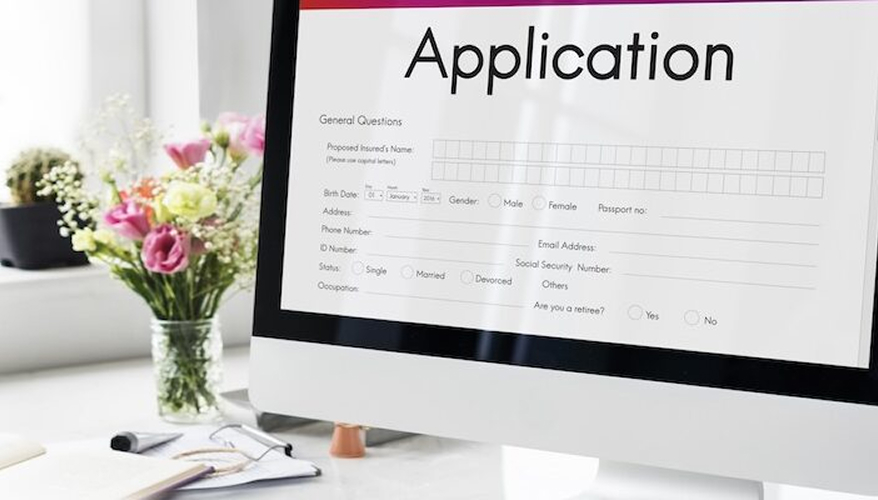Singapore’s status as a global business hub has attracted a diverse pool of talent from around the world. As a result, employers seeking to bring in foreign professionals to contribute to their businesses must navigate the intricacies of obtaining and renewing Employment Passes (EPs). In this blog, we will explore the essential aspects of the role employers play in this process, shedding light on the responsibilities and best practices.
Understanding the Employment Pass
The Employment Pass is a key work visa for foreign professionals seeking employment in Singapore. It is typically issued to individuals with a job offer in a managerial, executive, or specialised role, provided they meet certain criteria. Working on employment passes in Singapore also increases the chances of getting a Singapore PR for foreigners.
Employers are crucial stakeholders in this process, as they are directly responsible for applying for and managing the employment passes of their foreign employees.
Key Responsibilities of Employers
1. Eligibility Assessment:
Before initiating the EP application process, employers play a crucial role in conducting a thorough eligibility assessment of their foreign employees. This involves ensuring that the candidate meets the specific criteria outlined by the Ministry of Manpower (MOM). Key considerations include:
- Minimum Monthly Salary: Verifying that the offered monthly salary meets or exceeds the stipulated threshold for the relevant EP category.
- Relevant Qualifications: Confirming that the candidate possesses the educational qualifications required for the specific job role.
- Professional Experience: Ensuring that the candidate has the necessary professional experience relevant to the position they are being hired for.
2. Application Submission:
Employers are the principal actors responsible for initiating and submitting EP applications on behalf of their foreign employees. This process involves the following responsibilities:
- Accurate Information: Providing precise and up-to-date information about the company, including its registration details and business activities.
- Job Role Details: Clearly outlining the specifics of the job role, including responsibilities, qualifications required, and the proposed salary.
- Applicant’s Qualifications: Submitting comprehensive details about the candidate’s qualifications, experience, and any other relevant information requested in the application form.
3. Documentation:
The compilation and submission of necessary supporting documents are critical aspects of the EP application process. Employers must:
- Educational Certificates: Collate and submit copies of the candidate’s educational certificates, ensuring they meet the academic requirements for the job.
- Professional Qualifications: Provide evidence of any professional certifications or qualifications necessary for the position.
- Job Description: Furnish a detailed job description outlining the responsibilities and requirements of the role.
4. Compliance with Regulatory Changes:
Singapore’s immigration policies and EP requirements are subject to change. Employers should:
- Stay Informed: Regularly monitor updates and changes in immigration policies issued by MOM.
- Adapt Processes: Modify application procedures and requirements as per the latest regulatory changes to ensure compliance.
5. Medical Examinations:
Some EP applicants are required to undergo medical examinations. Employers are responsible for:
- Coordination: Facilitating the medical examinations by coordinating appointments with authorised healthcare providers.
- Submission: Ensuring that the results of the medical examinations are accurately documented and submitted as part of the overall application.
6. Renewal Process:
As EPs have a finite validity period, employers need to actively manage the renewal process:
- Timely Submission: Submitting renewal applications well in advance of the EP expiration date to avoid disruptions in employment.
- Eligibility Review: Ensuring continued compliance with eligibility criteria and addressing any changes in employment terms or job roles that might affect the renewal.
Best Practices for Employers
1. Proactive Communication:
Open and transparent communication is fundamental in managing the EP process effectively. Employers should:
- Keep Employees Informed: Regularly communicate with foreign employees about the status of their employment passes, including expiration dates and renewal requirements.
- Advance Notice: Provide ample notice about upcoming renewals, changes in processes, or any other information relevant to the EP status.
- Address Concerns Promptly: Encourage employees to voice any concerns or questions they may have regarding their EP status and address them promptly.
2. Stay Informed:
In the dynamic regulatory environment of immigration, staying informed is critical. Employers should:
- Regularly Monitor Updates: Actively check for updates and changes in EP regulations from the Ministry of Manpower (MOM).
- Adapt Processes: Modify internal processes promptly to align with any changes in regulations, ensuring continued compliance.
3. Engage Professional Assistance:
Given the complexity of immigration processes, employers can benefit from seeking professional assistance:
- Immigration Consultants: Engage reputable immigration consultants who specialise in EP applications and renewals. They can provide valuable insights, guidance, and ensure adherence to the latest regulations.
- Process Streamlining: Professionals can help streamline the application and renewal processes, reducing the risk of errors and expediting approvals.
4. Plan for Succession:
Anticipating and planning for unforeseen circumstances is a prudent practice for employers:
- Succession Planning: Develop a comprehensive succession plan for key roles held by EP holders. This plan should outline the steps to be taken if an EP holder departs or faces challenges in obtaining a renewal.
- Cross-Training: Ensure that there is cross-training among team members to mitigate the impact of sudden departures and maintain business continuity.
- Document Knowledge Transfer: Document critical job-related information held by EP holders to facilitate a smooth transition for their successors.
Conclusion
Successfully obtaining and renewing Employment Passes in Singapore requires a collaborative effort between employers and their foreign employees. Employers play a pivotal role in navigating the regulatory landscape, ensuring compliance, and fostering a positive working environment for their international talent. By understanding their responsibilities and staying proactive, employers contribute to the overall success of their businesses in the dynamic and competitive Singaporean market.
In this intricate process, engaging the services of immigration consultants emerges as a strategic move for employers. These professionals bring a wealth of expertise in navigating the complexities of immigration laws and regulations. Immigration consultants play a crucial role in streamlining the application and renewal processes, offering guidance on eligibility, documentation, and compliance. Their up-to-date knowledge of changes in policies ensures that employers can adapt their processes promptly, reducing the risk of errors and expediting the approval of Employment Passes.
In essence, the collaboration between employers, foreign employees, and immigration consultants forms a robust foundation for successful and compliant employment arrangements in Singapore. This tripartite approach not only facilitates smooth administrative processes but also enhances the overall experience for foreign talent, positioning businesses to thrive in the vibrant Singaporean business landscape. They can also act as an advisor to your employees looking to apply for Singapore PR through the PTS scheme.






